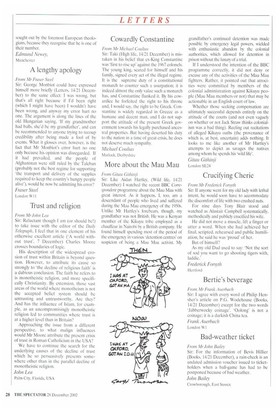More about the Mau Mau
From Gitate Githinfi
Sir: Like Aidan Hartley, (Wild life, 14/21 December) I watched the recent BBC Correspondent programme about the Mau Mau with great interest. As it happens. I, too, am a descendant of people who lived and suffered during the Mau Mau emergency of the 1950s. Unlike Mr Hartley's forebears, though, my grandfather was not British. He was a Kenyan member of the Kikuyu tribe employed as a chauffeur in Nairobi by a British company. He found himself spending most of the period of the emergency in various 'detention centres' on suspicion of being a Mau Mau activist. My
grandfather's continued detention was made possible by emergency legal powers, wielded with enthusiastic abandon by the colonial authorities, which allowed for detention in prison without the luxury of a trial.
If I understood the intention of the BBC programme correctly, it did not deny or excuse any of the activities of the Mau Mau fighters. Rather, it pointed out that atrocities were committed by members of the colonial administration against Kikuyu people (Mau Mau members or not) that may be actionable in an English court of law.
Whether those seeking compensation are ultimately successful depends entirely on the attitude of the courts (and not even vaguely on whether or not Jack Straw thinks colonialism was a bad thing). Reeling out recitations of alleged Kikuyu oaths (the provenance of which is, at best, uncertain) adds nothing. It looks to me like another of Mr Hartley's attempts to depict as savages the natives among whom he spends his 'wild life'.
Gitau Githinji
London SE24


























































 Previous page
Previous page